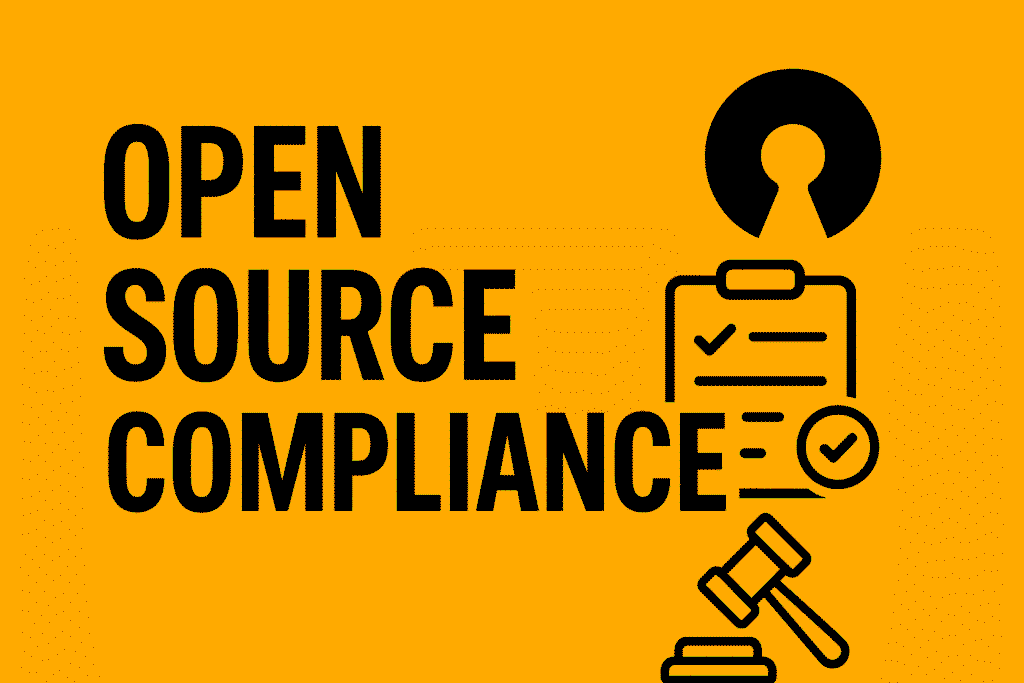These days, almost every business is using some form of open-source software — from small startups building their first apps to large companies managing complex systems. It’s affordable, flexible, and helps teams move faster.
But while open-source tools make things easier, they also come with rules. If your business isn’t paying attention to how these tools are licensed, you could run into legal trouble. That’s where open source compliance comes in.
It’s not just about following the law — it’s about protecting your business, earning trust, and avoiding unnecessary risks. In this article, we’ll walk you through why open-source compliance matters and how you can handle it smartly from the start.
What is Open Source Compliance?
Open source compliance means adhering to the terms and conditions set by the licenses of open-source software. These licenses outline how software can be used, modified, and shared. Each open-source project comes with its own set of rules, and businesses must follow these guidelines to avoid legal issues.
There are various types of open-source licenses, such as the MIT License, GPL, and Apache License. Each license has specific requirements for things like attribution, redistribution, and modification. Compliance means respecting these terms, ensuring that your business uses the software as intended.
Without proper management, non-compliance can lead to lawsuits and damage your business’s credibility. It’s important to understand the licenses governing the software you use, so your company can avoid unintended violations.
Why Open Source Compliance Matters for Your Business
Adhering to open-source compliance is essential to avoid legal consequences that could harm your business. While open-source software is free to use, it comes with strict licensing obligations. If not followed, businesses can face lawsuits, penalties, or even forced product recalls.
Non-compliance can also lead to security vulnerabilities. Businesses may unknowingly use software that doesn’t meet security standards, exposing them to cyber threats. In addition, failing to comply with licensing agreements can result in a tarnished reputation and lost business partnerships.
For example, failing to disclose changes made to a project under the GPL license can result in legal action. This could affect your business’s bottom line and relationship with customers. By following open-source software licensing requirements, businesses not only stay legal but also foster trust and credibility with customers and partners.
Common Pitfalls in Open Source Compliance
Many businesses make mistakes when it comes to open-source compliance. One common error is mismanaging licenses. Some businesses fail to track which open-source software they’re using and forget to comply with the terms. This can lead to unintentional violations.
Another mistake is not reviewing updates or changes in licenses. Open-source software licenses can change, and businesses must stay updated to avoid non-compliance. Failing to review new versions of the software or its licensing terms can result in using the software outside the allowed scope.
Lastly, attribution mistakes are common. Many open-source licenses require businesses to give credit to the authors or contributors of the software. Not properly attributing the software can lead to legal issues and reputational damage.
Legal Consequences of Non-Compliance
Ignoring open-source compliance can lead to serious legal consequences. A business could face a lawsuit for copyright infringement if it fails to comply with licensing agreements. Legal costs and penalties can be high, causing significant financial strain.
For example, if your company uses open-source software under a GPL license and doesn’t release modifications as required, you might be sued for violating the license terms. The lawsuit could force your company to stop using the software or even pay a settlement.
Non-compliance can also affect business relationships. Clients and partners may hesitate to work with a company that doesn’t follow licensing rules, fearing legal complications. It can also damage your company’s reputation, making it harder to build trust with potential customers.
How to Ensure Open Source Compliance
Ensuring open-source compliance requires businesses to take proactive steps. One of the first actions is to track open-source usage. Use tools or software to keep a record of all open-source projects in your systems. This will help you stay on top of license requirements.
Another step is to audit your open-source usage regularly. Conduct internal audits to ensure that all software is being used within the limits of its license. Many businesses also choose to implement compliance tools that automate tracking and auditing.
It’s also important to train employees who use open-source software. Educate them on the legal requirements and the importance of following licensing terms. By establishing clear policies and procedures, businesses can avoid compliance issues.
Benefits of Open Source Compliance for Your Business
Complying with open-source licenses brings several benefits to your business. First, it helps establish a strong reputation. Companies known for their commitment to compliance are viewed as trustworthy by customers, partners, and regulators.
Secondly, compliance can lead to improved security. Open-source software often has strong community support and regular updates. By ensuring compliance, your business can take advantage of these updates, improving software security and reducing the risk of vulnerabilities.
Lastly, being compliant makes it easier to scale your business. As your company grows and adopts more open-source solutions, maintaining compliance ensures that you’re ready to meet the demands of new markets and partnerships. It builds a solid foundation for future growth, without the legal risks or disruptions associated with non-compliance.
Final Thoughts on Open Source Compliance
The Importance of Open Source Compliance cannot be overstated. It helps your business avoid legal risks, safeguard security, and build a reputable, trusted brand. By understanding licensing terms, staying updated with changes, and conducting regular audits, businesses can ensure they’re on the right track. Compliance is not just a legal requirement—it’s a smart business move that can drive long-term success. So, take action today to protect your business and harness the full potential of open-source software, the right way.

